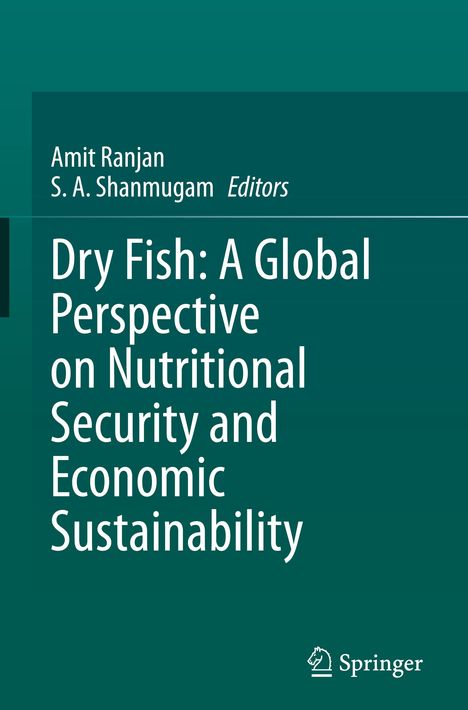Dry Fish: A Global Perspective on Nutritional Security and Economic Sustainability, Gebunden
Dry Fish: A Global Perspective on Nutritional Security and Economic Sustainability
(soweit verfügbar beim Lieferanten)
- Herausgeber:
- S. A. Shanmugam, Amit Ranjan
- Verlag:
- Springer Nature Switzerland, 08/2024
- Einband:
- Gebunden, HC runder Rücken kaschiert
- Sprache:
- Englisch
- ISBN-13:
- 9783031624612
- Artikelnummer:
- 11945200
- Umfang:
- 268 Seiten
- Nummer der Auflage:
- 2024
- Ausgabe:
- 2024
- Gewicht:
- 565 g
- Maße:
- 241 x 160 mm
- Stärke:
- 20 mm
- Erscheinungstermin:
- 15.8.2024
- Hinweis
-
Achtung: Artikel ist nicht in deutscher Sprache!
Klappentext
Dry fish is an excellent and cheap source of protein and fat in both developed and developing nations, especially for vulnerable populations. Its nutritional value, cultural importance, and economic relevance make it an integral part of diets and food systems worldwide. The diverse culinary applications and international trade of dry fish further highlight its relevance and appeal on a global scale. It offers distinct taste and flavors, adding diversity to global cuisines and enhancing culinary experiences. It is used in various recipes, from stews and curries to snacks and condiments and is highly valued for its long shelf life and nutritional benefits. Consumption of dry fish not only improves nutrition but also has far-reaching impacts on the economy, society and cultural practices. It meets the dietary requirements of marginalized communities and contributes to food security. In coastal regions, salted and sun-dried fish are widely consumed, reflecting the importance of this preservation method. Dry fish plays a crucial role in nutritional security, particularly in coastal areas, where it holds immense importance for the economy, society, and culture. Dry fish also serves as a valuable commodity in international markets, fostering cross-cultural exchanges and contributing to trade flows. Furthermore, dry fish has gained popularity in various global cuisines. Countries like Portugal, Spain, Thailand and several African nations have their own versions of dried or salted fish dishes, reflecting the diverse culinary traditions and preferences around the world.
Dry Fish: A Global Perspective on Nutritional Security and Economic Sustainability offers a global perspective on the sustainability of dry fish production and its environmental implications. It explores traditional and advanced drying methods, their impact on fish stocks and potential strategies for sustainable practices. The text discusses the challenges and opportunitiesin the industry, such as market trends, consumer preferences and technological advancements. The book combines scientific research, case studies and expert insights to provide a comprehensive overview of the topic. It serves as a valuable resource for researchers, policymakers and professionals in the fields of nutrition, food security, fisheries and economic development. By highlighting the importance of dry fish as a global resource, the book aims to foster discussions and actions that promote the sustainable utilization of this valuable food source for the benefit of present and future generations.


